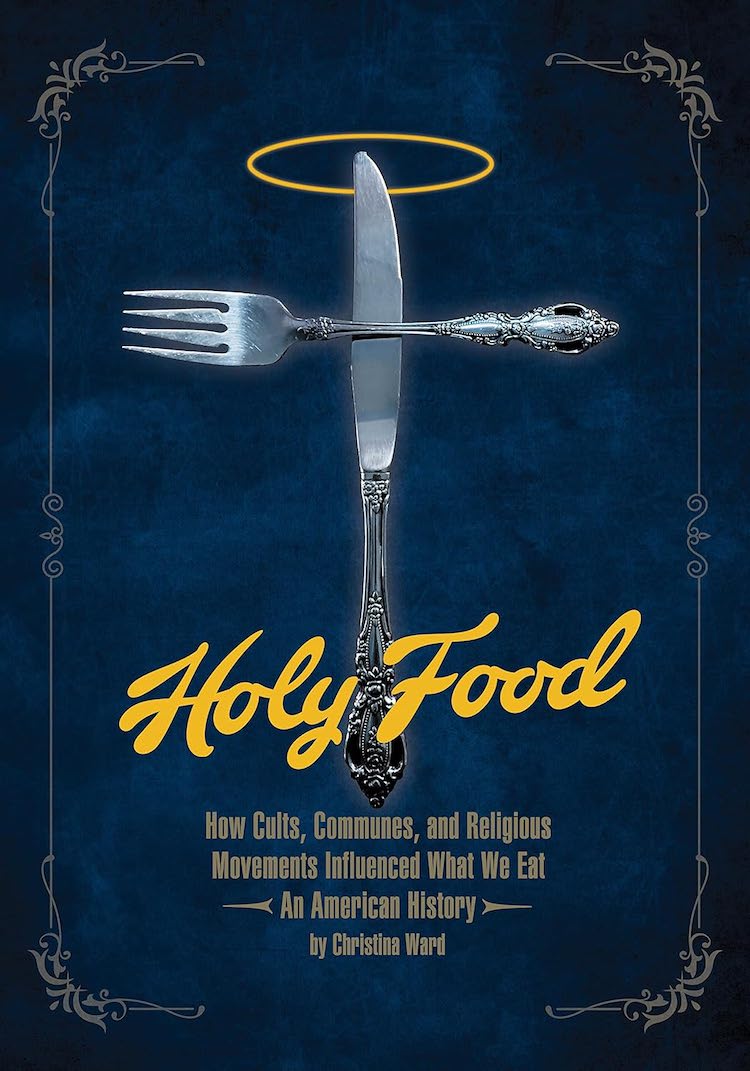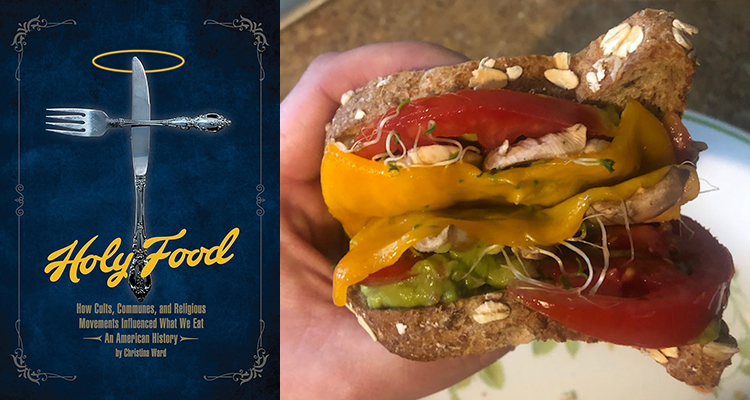As the headline of this article states, Holy Food technically isn’t a cookbook. Rather, the brand new book—written by Milwaukee-based writer and independent food historian Christina Ward and published by Process Media Inc.—examines the role religion (including cults, communes, so-called “gurus,” and other faith-rooted movements) has in terms of influencing what Americans eat…or don’t eat. Much of that influence has permeated non-religious factions of society, and continues to show itself in a variety of ways to this day.
The 361-page book contains meticulous research, more than 100 historic photos, and information about underpublicized American belief systems that ranges from troubling to immensely interesting in nature. And once again, it’s not a cookbook per se. However, you will also find approximately 80 recipes between the front and back covers of Holy Food.
While we dipped in and out of chapters about religions/cults we found especially interesting, we also found ourselves skimming recipes out of curiosity about what particular devotees were expected to eat (and why). Admittedly, we were also looking for something amid the simplistic, guilt-motivated, pleasure-withholding collection of culinary creations that might actually be to the liking of our sin-seeking agnostic taste buds. We’re happy to say we were able to find something to our liking. Prior to Ward’s in-person event at Boswell Books tonight, we prepared some “holy food” from Holy Food.
Bypassing items featured in such chapters as “Utopian Dreams” and “The Lost Tribes,” we settled on a foodstuff listed in Chapter 10, entitled “Hindu, But Make It American.” Specifically, we picked a recipe from 3HO (a.k.a. the Healthy, Happy, Holy Organization), a controversial group that started in Los Angeles in 1969. Some view 3HO as a Western sect of the Sikhism and others deem to be a cult with a long, troubling history of abuse. In terms of food, 3HO members apparently must follow a strict lacto-vegetarian diet, which doesn’t allow meat or egg consumption. Members are also prohibited from using alcohol, drugs, and tobacco. Given its relatively modern background, I was able to find something tasty that derived from this otherwise unsavory religion/cult.
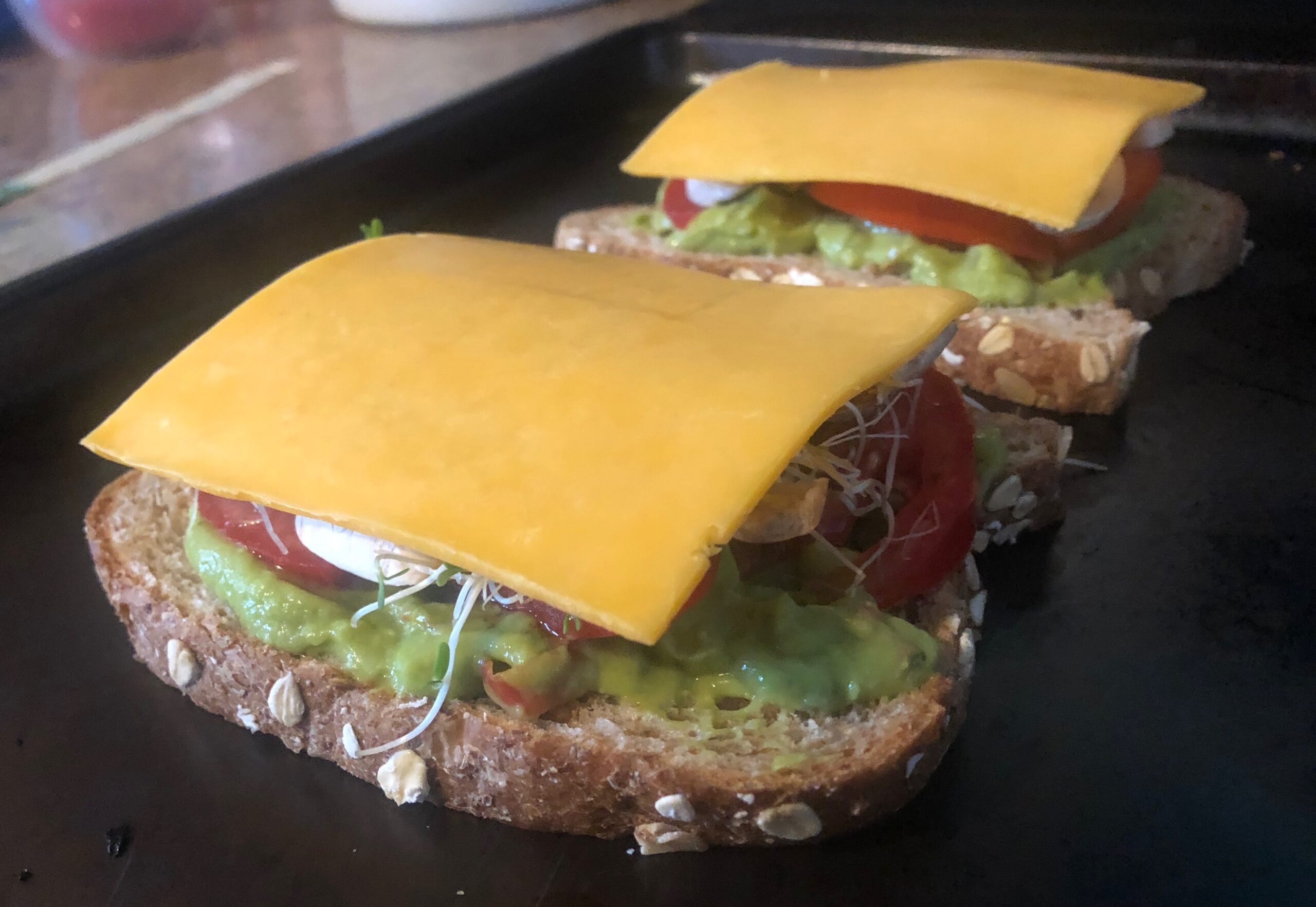
“The Golden Temple Sandwich” is a downright solid sandwich that seems right out of the 1970s. Without giving away ALL the recipe specifics (you should buy the book if you want it), this plussed-up veggie sandwich is something that wouldn’t seem out of place near the bottom of the Jimmy John’s menu. Basically, it’s whole grain bread, guacamole spread, sliced mushrooms, alfalfa sprouts, tomato slices, and either Monterey Jack or cheddar cheese slices stacked and placed open-face under a broiler until the cheese is melted.
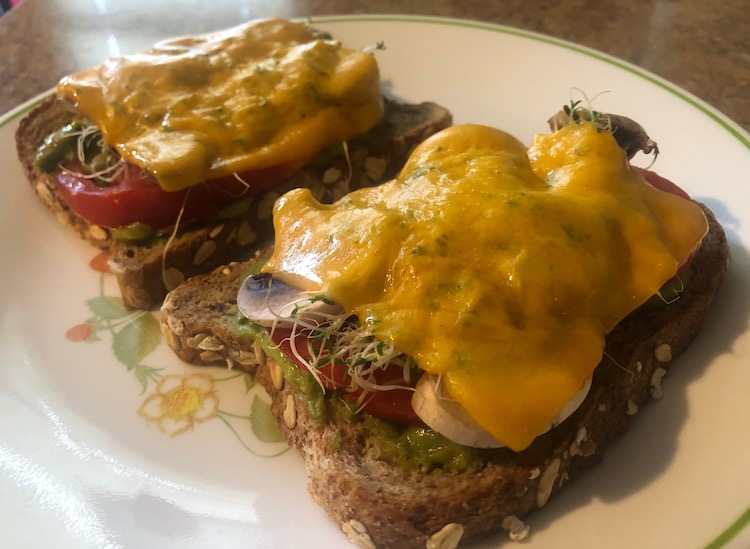
We made The Golden Temple Sandwich earlier this week, even making sure to pick up groceries from Outpost Natural Foods in effort to replicate the organic, and non-GMO aspects of the produce from the time the sandwich was created. It was easy to make (especially if, like us, you cheat and buy pre-made guac and just add a little extra garlic salt and finely diced raw onion to it).
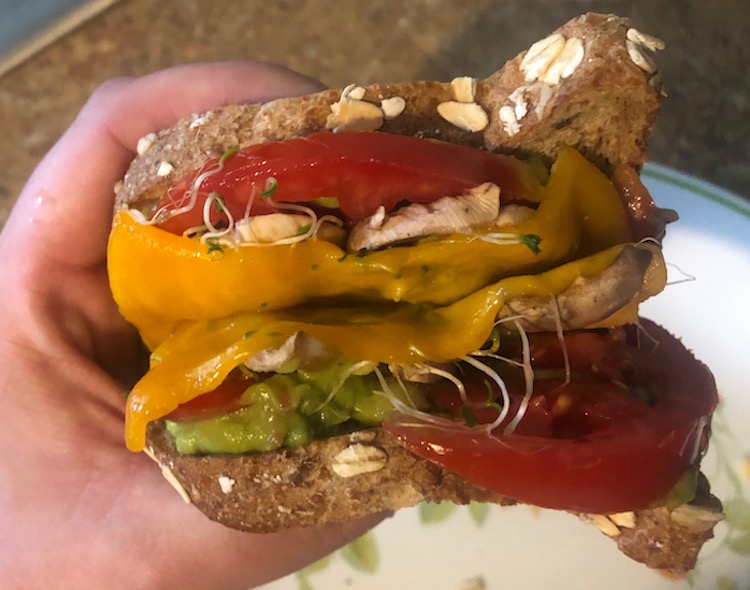
We put it on our most ’70s-looking-ass plate and, since we’re not in 3HO and don’t care about their rules, folded the sandwich that’s intended to be eaten open-faced in half to make two mini sandos from our pair of bread slices. We took a bite and, well, it was pretty damn good! Sure, the guacamole and cheese seemed like an unnecessary combo and we’re not too hyped on putting guac under a broiler for a few minutes, but compared to many of the other recipes we saw in Holy Food, The Temple Sandwich was downright “bussin.”
We reiterate: Holy Food is not a traditional cookbook. That being said, among the thorough explorations and explanations of the power religion plays on society and the unexpected power it has on America’s collective diet, there are some recipes in Holy Food. And even though the group from which it was created seems not at all great, at least one of those recipes is divine as hell.
You can attend Christina Ward’s free author event at Boswell Books tonight at 6:30 p.m. and you can purchase Holy Food directly from Boswell Books both in-store and online.
